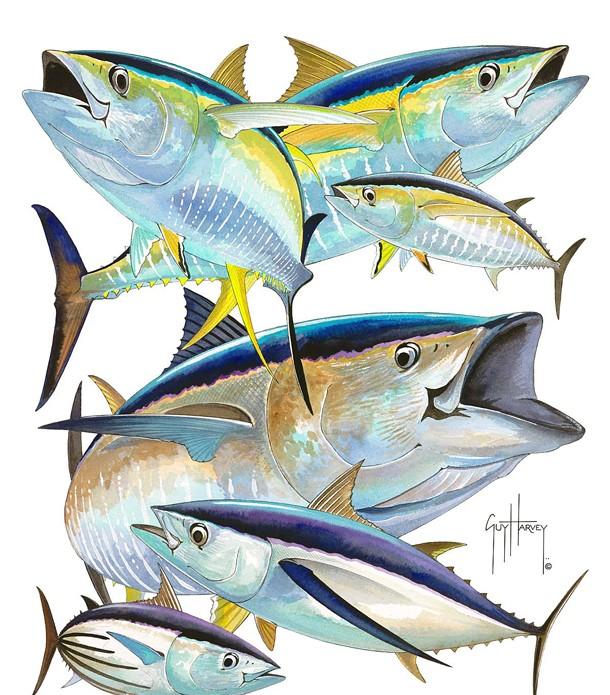
Today is the International Day for Biodiversity diversity, a concept that describes the degree of diversity in nature. Jiang Zhigang et al. (1997) defined biodiversity as follows: "Biodiversity is the synthesis of ecological complexes formed by organisms and their environments and the various ecological processes related to them, including animals, plants, microorganisms and the genes they possess and the complex ecosystems they form with their living environments".
Today I would like to introduce you to the tuna known as the giant panda in the sea, this large teleost fish that we are both familiar with and unfamiliar with is very fascinating, the largest Atlantic bluefin tuna can reach a huge size of 4.6 meters long and 685 kilograms.
Taxonomic tuna refers to the genus thunnus, which is divided into two subgenuses: the tuna subgenus, also known as the bluefin group, and the neotamine subgenus, also known as the yellowfin group.
There are five species under the subgenus Tuna, namely the albacore tuna (t. tuna). alalunga), southern bluefin tuna (t. maccoyii), big-eyed tuna (t. obesus), Pacific bluefin tuna (t. orientalis) and Atlantic bluefin tuna (t. thynnus)。
Under the subgenus Neotuna there are three species, namely the yellowfin tuna (t. tuna). albacares), blackfin tuna (t. atlanticus) and the long-tailed tuna (t. tonggol)。
Due to long-term overfishing, two species of tuna are currently vulnerable (VU), one endangered and one critically endangered (CR). The presence of tuna is very important for marine ecosystems, protecting tuna and protecting the biodiversity of the earth!
Capnote: Albacore tuna
Photo note: Southern bluefin tuna
Picture note: Big-eyed tuna
Photo note: Pacific bluefin tuna
Caption: Atlantic bluefin tuna
Picture note: Yellowfin tuna
Picture note: Blackfin tuna
Illustration: Long-tailed tuna